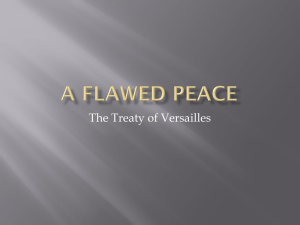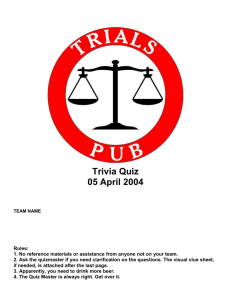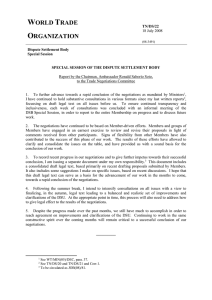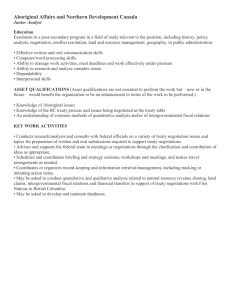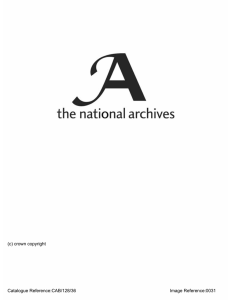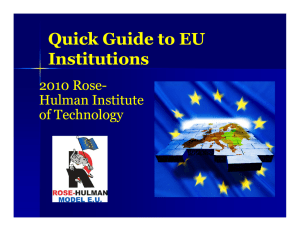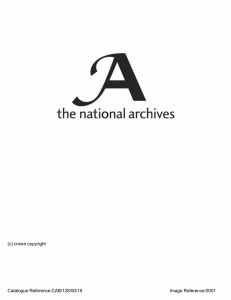(c) crown copyright Catalogue Reference:CAB/129/95 Image Reference:0029
advertisement
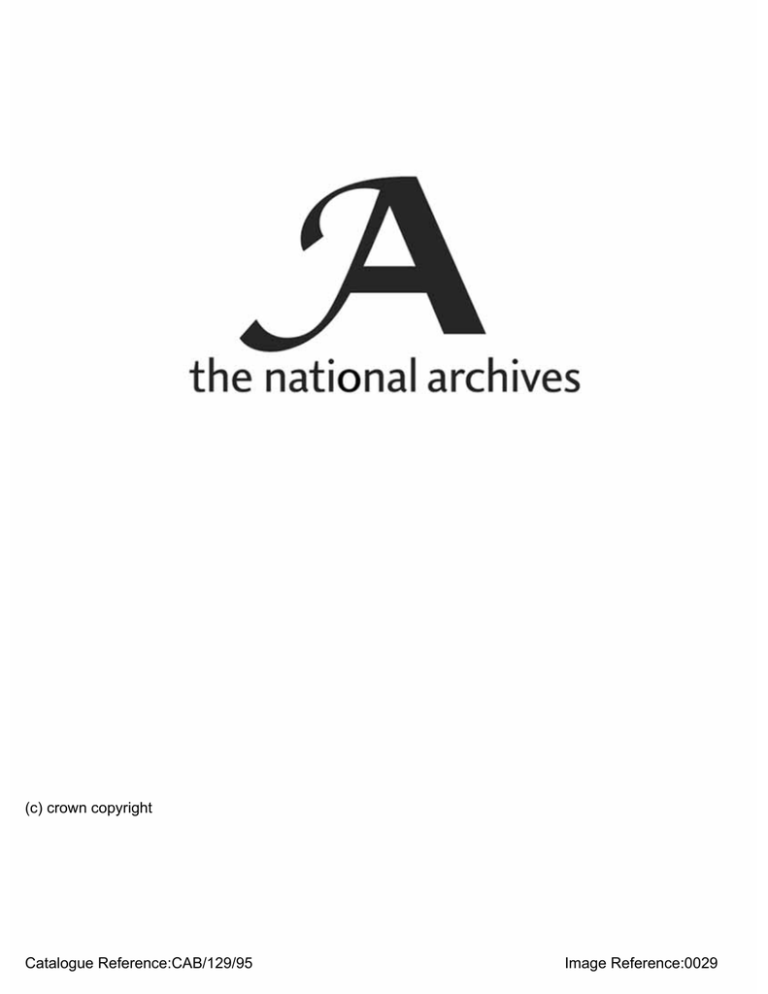
(c) crown copyright Catalogue Reference:CAB/129/95 Image Reference:0029 SECRET THIS DOCUMENT IS THE PROPERTY OF HER BRITANNIC MAJESTVS Printed for the Cabinet. November 1958 C. (58) 229 4th November, 1958 GOVERNMENT x Copy No. CABINET EUROPEAN FREE TRADE AREA N O T E BY THE PRIME MINISTER The failure to make any real progress so far in the negotiations for a European Free Trade Area, which the Paymaster-General- has reported, presents us with serious economic and political problems. We must continue to strive for the establishment of a Free Trade Area, on terms satisfactory to us, alongside the Common Market which is due to come into being on 1st January, 1959; at the same time we must be prepared if we do not succeed in this objective. After consultation with the Ministers mainly concerned, I have decided that the following plan of work should be carried out. 2 For the present we should do everything we can to keep the Free Trade Area negotiations going on a constructive footing. But if, by the end of November, it has become clear that the French are unwilling to make any genuine progress, we should ourselves break off the negotiations. This should be done in such a way as to leave the door open for their later resumption if that became feasible. 3. To this end, we should forthwith— (a) Try to mobilise at a high level the support of the Americans for the creation of a Free Trade Area contemporaneously with the Common Market. We could point to the damage that a Common Market organised on French protectionist lines would do to American economic interests. More important, we could emphasise the danger to the whole Western position if the Six establish their Common Market without a Free Trade Area. Faced with the economic challenge, the United Kingdom would have to make a reappraisal of our role in European organisations. Moreover, a Common Market with a high degree of protection for foodstuffs and basic materials would have serious disadvantages for many underdeveloped countries. (b) Consider the desirability of denouncing the Western European Union Treaty and using the possibility of that in our discussions with the French. We could hope to secure the support of the Americans for the - v* argument that while we would do our best in the North Atlantic Treaty Organisation the economic behaviour of the Six makes the close political and military link contemplated in the Western European Union quite unrealistic. (c) Consider also whether we should take steps to stimulate Dr. Adenauer, the German Federal Chancellor, to invite the Prime Minister and General de Gaulle, the French Prime Minister, to a conference to consider a solution on political lines. But we must be prepared for this in advance and work out what form of compromise we could accept which would allow the French some breathing space, if necessary by some special provisions for France, and at the same time avoid the disruption of Western Europe into two hostile economic camps. (A reaffirmation of the desire for a Free Trade Area in principle would be the worst possible outcome of such a conference.) 4. At the same time we must try to prepare, as follows, against the total failure of these negotiations— (a) We should consider the arguments for and against taking discriminatory action against the Six, e.g., by the imposition or reduction of quotas when the Common Market comes into operation. (b) We should consider also inviting the countries outside the Six to a conference designed to establish a second Common Market with them, and the possibility of securing the adherence of Canada to such a scheme. (c) We should work out (and begin to deploy) a realistic public relations case, presenting this critical situation in such a way as to justify an eventual compromise if one were to be negotiated, or an alternative policy (such as (a) or (b) above) if we are forced to move in that direction. 5. I have asked the Paymaster-General, as the Minister responsible for supervising and co-ordinating the negotiations for the Free Trade Area, to pursue this plan of work in consultation with the other Ministers concerned, through the official machinery which is already in being. H. M. 10 Downing Street, S.W. 1, 3rd November, 1958.

